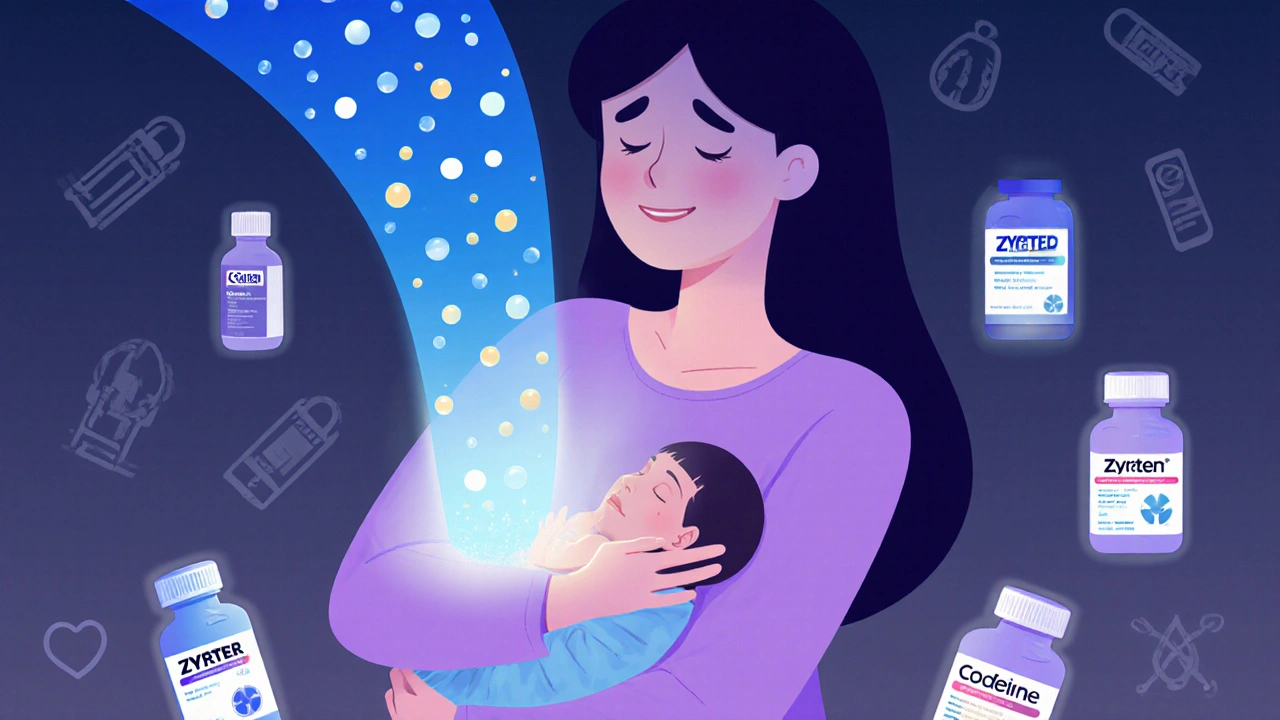Safe Cough Medicine While Breastfeeding
When you're breastfeeding and hit with a nasty cough, the last thing you want is to choose between feeling better and protecting your baby. The good news? Safe cough medicine while breastfeeding, many common cough treatments are considered low-risk when used correctly, and you don’t need to stop nursing to use them. Also known as cough suppressants breastfeeding, these options are carefully studied for how much drug passes into breast milk and whether it affects the baby’s sleep, feeding, or development. You’re not alone in this—thousands of nursing moms face the same choice every day, and there’s solid science to guide you.
The key is understanding how drug transfer breast milk, the process by which medications move from your bloodstream into your milk. Also known as breastfeeding medications, this isn’t a simple yes-or-no question. Some drugs barely make it into milk; others build up slowly. What matters most is the dose, the baby’s age, and whether the drug has known side effects in infants. For example, dextromethorphan, a common cough suppressant, shows up in tiny amounts and rarely causes issues in older babies. Meanwhile, codeine is risky because some moms metabolize it into morphine too quickly, which can sedate the baby. That’s why you need to avoid guesswork and rely on trusted sources like the LactMed database, a free, science-backed resource from the National Library of Medicine that tells you exactly which drugs are safe, which to avoid, and what doses to use.
Don’t assume natural means safe. Honey is great for adult coughs—but never give it to babies under one. Some herbal cough syrups contain ingredients that haven’t been tested in nursing moms. Even something as simple as guaifenesin (an expectorant) is usually fine, but you still need to check the full label. Many over-the-counter cough mixes combine multiple drugs—like antihistamines, decongestants, or pain relievers—and that’s where trouble hides. A product labeled "total relief" might contain pseudoephedrine, which can reduce milk supply, or diphenhydramine, which can make your baby drowsy. Stick to single-ingredient options when you can, and always time your dose right after a feeding to give your body time to clear the drug before the next feed.
You don’t need to suffer through a cough to be a "perfect" mom. The goal isn’t to avoid all meds—it’s to pick the right ones. Most breastfeeding moms who take approved cough medicines see zero changes in their baby’s behavior, feeding, or sleep. And if you’re unsure? Talk to your pharmacist or doctor. They can cross-check your meds against LactMed or Hale’s classification system and tell you exactly what’s safe. This isn’t about fear—it’s about smart choices. Below, you’ll find real-world advice from posts that break down exactly which cough treatments work, which ones to skip, and how to protect both your health and your baby’s—all without the hype or confusion.






